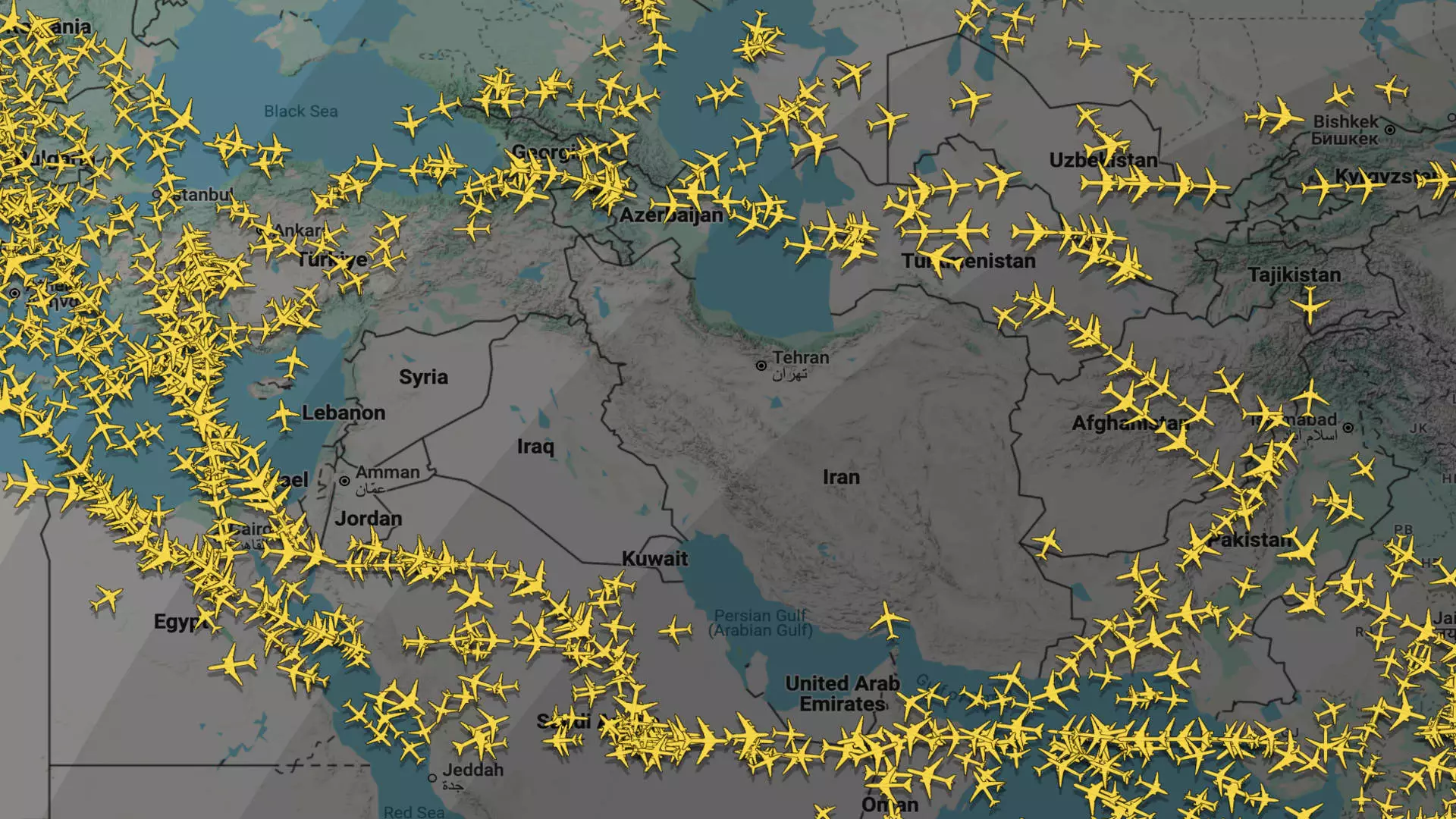The ongoing turmoil in the Middle East has reached a critical point that not only endangers lives but also brings significant turmoil to the global aviation industry. The latest episode, characterized by a missile strike from Iran on a U.S. military base in Qatar, has sent shockwaves throughout the airline community. More than 20 flights that were destined for Doha had to be diverted, while additional flights bound for Dubai unexpectedly turned around, creating chaos in one of the world’s most crucial air travel corridors. The fact that this military escalation occurred during an already tumultuous time for international travel underlines the alarming reality that we now face—air travel in conflict zones, once viewed as a logistical challenge, has now morphed into a matter of national security and global concern.
Airlines Taking Precaution – A Desperate Response
Airlines are now grappling with an unprecedented crisis as they are forced to alter routes and suspend operations to protect passenger safety. Major carriers like Emirates and Air India have taken drastic measures by changing flight paths to avoid conflict zones altogether. Emirates, for example, has publicly noted that while it aims to maintain its operational schedule, the reality of the situation is that flights will have to be rerouted far from conflict areas. This not only delays travel but also dramatically increases operational costs, a burden that could be passed down to consumers in the form of higher ticket prices.
In a disturbing twist, Air India has reportedly ceased all flights into and out of the region, claiming that the interruptions are beyond the airline’s control. While it is commendable that airlines are prioritizing safety, one can’t help but feel that such reactions may be more reactive than proactive. Why weren’t these flight plans reviewed and adjusted well in advance of such escalation? The loss in revenue for these airlines extends beyond immediate financial hardship; it serves as a grim reminder of the volatile socio-political landscape that can change overnight, leaving airlines scrambling to respond to crises they could have anticipated.
The Ripple Effects of Conflict on Global Travel
Air travel disruptions caused by military conflicts extend beyond the immediate region. The recent crumbles of stability in Middle Eastern airspace are sending ripples across international routes, affecting airlines from the west to the east. British Airways, alongside several others, announced cancellations of its Doha flights through midweek, citing safety as a priority. It’s not merely the cancellations; it’s the long-term implications for international relations that loom ominously. As major airlines halt flights to the region, the likelihood of strained diplomatic relations increases, further isolating countries already facing significant geopolitical challenges.
America’s carriers are feeling the repercussions as well. After pausing services to both Doha and Dubai, American Airlines joins a growing list of airlines revisiting their flight plans in light of security concerns. This situation reflects a broader pattern of airlines struggling to adapt to geopolitical tensions—at what point do these flights become less viable economically due to the increased risks? What happens to the many lives impacted by these decisions? Individuals bound for business or personal reasons face uncertainty, and once-trusted travel networks are falling apart, leaving families and businesses scrambling to re-organize.
Economic Implications of Airspace Closures
The closure of airspace doesn’t just mean delayed flights; it embodies a burgeoning economic crisis. The operational costs for airlines will inevitably skyrocket due to the increased fuel consumption attributed to longer flight paths devised to avoid trouble spots. For airlines operating on thin margins, like many low-cost carriers, these changes can lead to a vicious cycle where ticket prices must increase just to stay afloat. In an economy still recovering from the aftermath of the pandemic, pricing flights out of the average consumer’s budget risks long-term consequences for the airline industry.
Moreover, the impact typically doesn’t end with airlines. Hotel industries in the Middle East, reliant upon incoming travelers, will also feel the effects. Retail, dining, and tourism will suffer, creating broader economic repercussions that will reverberate across interconnected sectors. It raises a pertinent question: how do we navigate these complex and intersecting crises? The responsibility must lie with political leaders to ensure that diplomatic solutions are prioritized over aggressive military actions, providing the necessary stability to support not only air travel but our interconnected global economy.
As we witness travel evolve into a perilous endeavor amidst geopolitical strife, safety has taken precedence and it remains to be seen how easily the industry can regroup. Will changes in policy and infrastructure to prioritize safety overshadow historical patterns of uncertainty? Only time will tell, but one thing remains clear: the ramifications of military actions extend far beyond borders and into the lives and livelihoods of those affected. The future of air travel hangs precariously in the balance.

